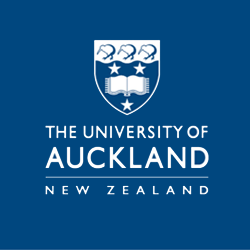
Loops of literacy: Promoting writing skills in large undergraduate classes through online group work
Status
Completed: 1 December 2011
Project Details
A project completed in 2011, undertaken by The University of Auckland, to describe how students’ digital literacy and energy for online interactions can be used to enhance student literacy and writing skills.
Aims:
The main aim of the project was to use students’ digital literacy and energy for online interactions to enhance their literacy in general, and to develop their writing skills in particular.
Methodology:
The project used a mixed method approach including:
- a review of the literature
- interviews with the staff who marked the final essays
- student survey questionnaires before and after the online work
- interviews with students during focus group meetings.
Team

Nancy November
The University of AucklandStatus
Funding
$3,000.00 (excl GST)
Key Findings
The key findings from the project included:
- Student surveys before and after the online work showed an improvement in the students’ attitudes to the use of online interactions in helping them to learn during the course.
- In both years the students were also asked to identify which of the online interactions were most beneficial to their learning, and to give reasons for their selections. In 2008 almost half the survey respondents found the online discussion (probing question and critical response) in small groups to be the most beneficial. Twenty-four percent of respondents nominated the annotated bibliography using Google Docs, and 21% chose the online reflection in larger groups.
- The reasons students gave for the above choice showed several key learner advantages of online asynchronous discussion in small groups: autonomy – enjoyment of the process of constructing their own knowledge and using their own critical skills to give peer feedback; comfort and congeniality – “Small groups make it more intimate. Easier to put a point across”; diversity and range of resources and viewpoints shared; ease and efficiency of idea exchange and knowledge building; time to give a considered response (as compared with face-to-face interactions).
- E-moderators noted that it was the critical reflections phase, in large groups, that engendered some of the highest quality work. Perhaps the students felt that the stakes were higher, and thus the quality of response had to be higher, in that more public forum.
- Students showed understanding of how the less formal online discussion and reflection could feed into their more formal reflective discursive essays. In the best essays, students wove together the voices of their peers and scholars in service of their own arguments.
- The e-moderators in 2010, several of whom had also been involved in moderating the 2008 course, noted that the quality of comments and reflections was higher due to the more tightly focused sequence of online tasks. They observed more critical insight and the development of students’ personal voices.
- The findings also identified the following issues: difficulties using the appropriate musical term or concept in context; difficulties crafting higher level arguments that go beyond simple comparisons towards more critical responses; and the need for students to develop their personal voices further in writing.
- E-learning strategies for dealing with the above issues within and beyond first-year music history courses included the following: student creation of a course glossary, which is specifically geared to the development of the vocabulary of the discipline; extended online discussion tasks, based around a focal topic or issue, which specifically promotes student learning and contextual use of new music terminology; and an emphasis on peer analysis of writing, exploring positive and negative aspects of the writing, and trying to identify hallmarks of the writer’s personal ‘voice’.
Key Recommendations
The key recommendations from the project included the following guidelines for using online group work to improve student writing:
Modularise, and think beyond the online module | In ‘blended courses’, integrate online learning with a variety of other appropriate learning modalities; choose the best tool (whether on- or offline) for the learning task; and make sure that the connections between on- and offline writing tasks are clear to the students.
Motivate, from a student perspective | Students of the Facebook age are concerned about their online presence. Moving from low-stakes (small-group, non-assessed, less formal) online writing tasks to higher stakes (large-group, assessed, more formal) tasks creates a safe environment in which they can express themselves and use their digital literacy to educational ends.
Model the process, and permit the teacher perspective | Consider gathering high-quality student writings as models that show, for example, how online discussion can feed into essays. Students enjoy the role of teacher: allow them room to use this skill, for example, by using peer review assessment rubrics that are simple and open-ended.
Moderate, and also guide | For first-year students, in particular, the moderator can play a significant role in guiding discussion. E-moderators can model the process of the enquiring mind, suggesting routes to answers and showing students ways to validate their own voices.
A guide prepared by Nancy November.
(PDF, 412KB, 8-pages).
- 1 December 2011